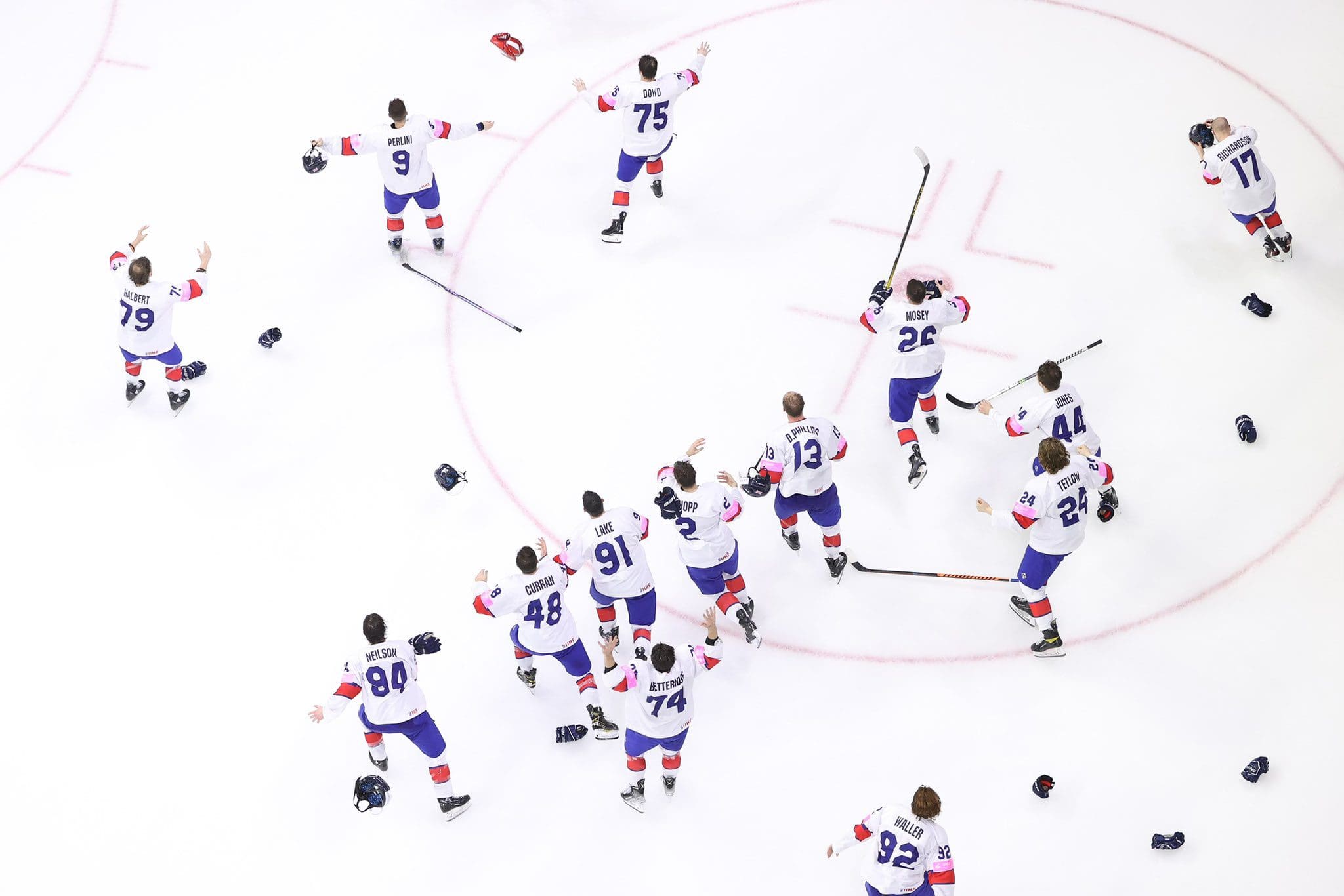Taking to the frozen battleground of international competition, British ice hockey teams are embarking on an exciting journey at the Olympic Games. From the clatter of sticks to the speedy glide across the icy rink, these athletes demonstrate skill, strategy and unwavering determination. As they face formidable opponents on the great Olympic stage, every pass, shot and rebound is a testament to their dedication. This is a riveting story of teamwork, resilience and the pursuit of excellence as the British hockey teams strive for victory, national pride and a place in Olympic history.
Preparing And Training For The Olympic Games
1. Training Camps:
National hockey teams typically organize training camps where players come together for an intensive period of practice. These camps serve to build team chemistry, fine-tune strategies, and address any weaknesses.
2. Skill Development:
Individual and collective skill development is a crucial aspect of preparation. Players work on improving their stickhandling, passing, shooting, and defensive skills. Specialized coaches may be involved to enhance specific aspects of the game.
3. Strategic Planning:
Coaches analyze opponents’ strengths and weaknesses to develop effective game strategies. Tactical sessions focus on both offensive and defensive plays, penalty killing, power plays, and overall game management.
4. Physical Conditioning:
Fitness is paramount in hockey. Players undergo rigorous physical conditioning programs to ensure they are in peak shape for the demands of the sport. This includes cardiovascular training, strength and conditioning exercises, and injury prevention measures.
5. Mental Preparation:
Mental resilience and focus are crucial in high-stakes competitions like the Olympic Games. Sports psychologists may work with the team to enhance mental toughness, concentration, and teamwork.
6. Friendly Matches and Tournaments:
Teams often participate in friendly matches and tournaments as part of their preparation. These games provide valuable opportunities to implement strategies in a competitive setting and identify areas for improvement.
7. Technology Integration:
Advanced technologies, such as video analysis and performance tracking, are commonly used to assess player performance and identify areas for improvement. This data-driven approach helps coaches make informed decisions.
8. Logistical Planning:
Logistics play a vital role in ensuring a smooth transition from training to competition. Planning includes travel arrangements, acclimatization to the host country’s conditions, and coordination with support staff.
9. Injury Management:
The medical team closely monitors players‘ health and addresses any injuries promptly. Injury prevention strategies are also incorporated into training routines to minimize the risk of setbacks.
10. Team Bonding:
Team cohesion is essential for success. Activities that foster team bonding, trust, and communication are often integrated into the preparation process to create a cohesive and supportive team environment.
11. Ongoing Evaluation:
Continuous evaluation of player performance, team dynamics, and the effectiveness of strategies is crucial. Coaches and support staff make adjustments based on ongoing assessments to optimize the team’s readiness.
Olympic Goals And Expectations
As the British hockey team gears up for the upcoming Olympic Games, their goals and expectations reflect a combination of ambition, realistic assessments, and the collective determination of the players. The team’s primary goal is undoubtedly centered around securing a podium finish and clinching an Olympic medal. The players, coaching staff, and fans alike harbor a shared aspiration to see the Union Jack raised in celebration on the Olympic stage.
However, the path to Olympic glory is laden with challenges. The British hockey team recognizes the formidable competition they will face from established hockey powerhouses, each vying for supremacy. The challenges include navigating through intense matches, adapting to different playing styles, and overcoming tactical nuances presented by opponents. The team’s expectations are tempered with a pragmatic understanding of the level of competition at the Olympic level, fostering a focus on continuous improvement and adaptability throughout the tournament.
The overall mood of the British hockey team is one of optimism and unity. The players are clearly aware of the challenges they face, but this awareness fuels their commitment to hard work, strategic preparation and a resilient mindset. In your free time, to relieve psychological and emotional fatigue, you can always get the review here of SpinShake casino. The coaching staff plays a crucial role in creating a positive atmosphere, instilling confidence in the players and emphasizing the strengths that make the team a formidable opponent on the world stage.
Key Competitors
| Team | Strengths | Weaknesses |
| Canada | Exceptional skill and physical strength of the players | Potential pressure under high expectations |
| Russia | Skilled forwards, strong defense | Inconsistency in performance, potential distractions |
| United States | Speed and physical play | Lack of experience in critical situations |
| Sweden | Disciplined, structured play, teamwork | Vulnerability to aggressive opponents |
| Finland | Strong goaltending, solid defense, work ethic | Insufficient depth of scoring |
Support And Fan Base
The level of support for the British hockey team, both domestically and internationally, plays a significant role in boosting team morale and fostering a positive atmosphere. At home, the British hockey team enjoys a dedicated fanbase that passionately rallies behind them during major tournaments, including the Olympics. The support is not only evident in attendance at games but also in the form of widespread viewership and social media engagement.
Home fans give players a sense of pride and motivation because they know they have the support of their home country. The roar of the crowd, whether in the arena or through virtual platforms where you can bet on sports or cheer on your team through casino sites that accept wire transfer deposits, serves as a powerful source of encouragement, lifting the team’s spirit in difficult moments. The emotional investment of the fans in the team creates a unique bond that resonates with the players, inspiring them to give their best on the ice. Internationally, the British hockey team may not have the same large-scale support as traditional powerhouses, but it has a growing global fan base that appreciates the team’s efforts and resilience. The underdog narrative often attracts neutral fans who admire the determination of British players against more established competitors. This international support, while smaller in volume, helps to boost team morale by demonstrating the wider impact of their performances on the world stage.
Passionate supporters not only contribute to the ambiance of the games but also serve as a crucial element in the team’s identity. The sense of a united front, with fans and players sharing a common goal, creates a powerful synergy that can positively influence performance. The British hockey team, aware of the backing they receive, often acknowledges and appreciates their supporters, fostering a sense of community and shared achievement.
The level of fan support for the British hockey team, both from domestic and international audiences, plays a vital role in boosting team morale. The passionate backing creates an emotional connection that goes beyond the game, influencing the players positively and contributing to the overall experience of representing their nation on the Olympic stage.
Conclusion
In this Olympic journey, the British hockey team exemplifies the spirit of competition, unity, and the pursuit of excellence. Regardless of the outcomes, their participation in the Games stands as a testament to the enduring legacy of the sport and the indomitable spirit of those who proudly don the British colors. The anticipation builds, and the stage is set for a memorable chapter in the annals of British hockey at the Olympic Games.











